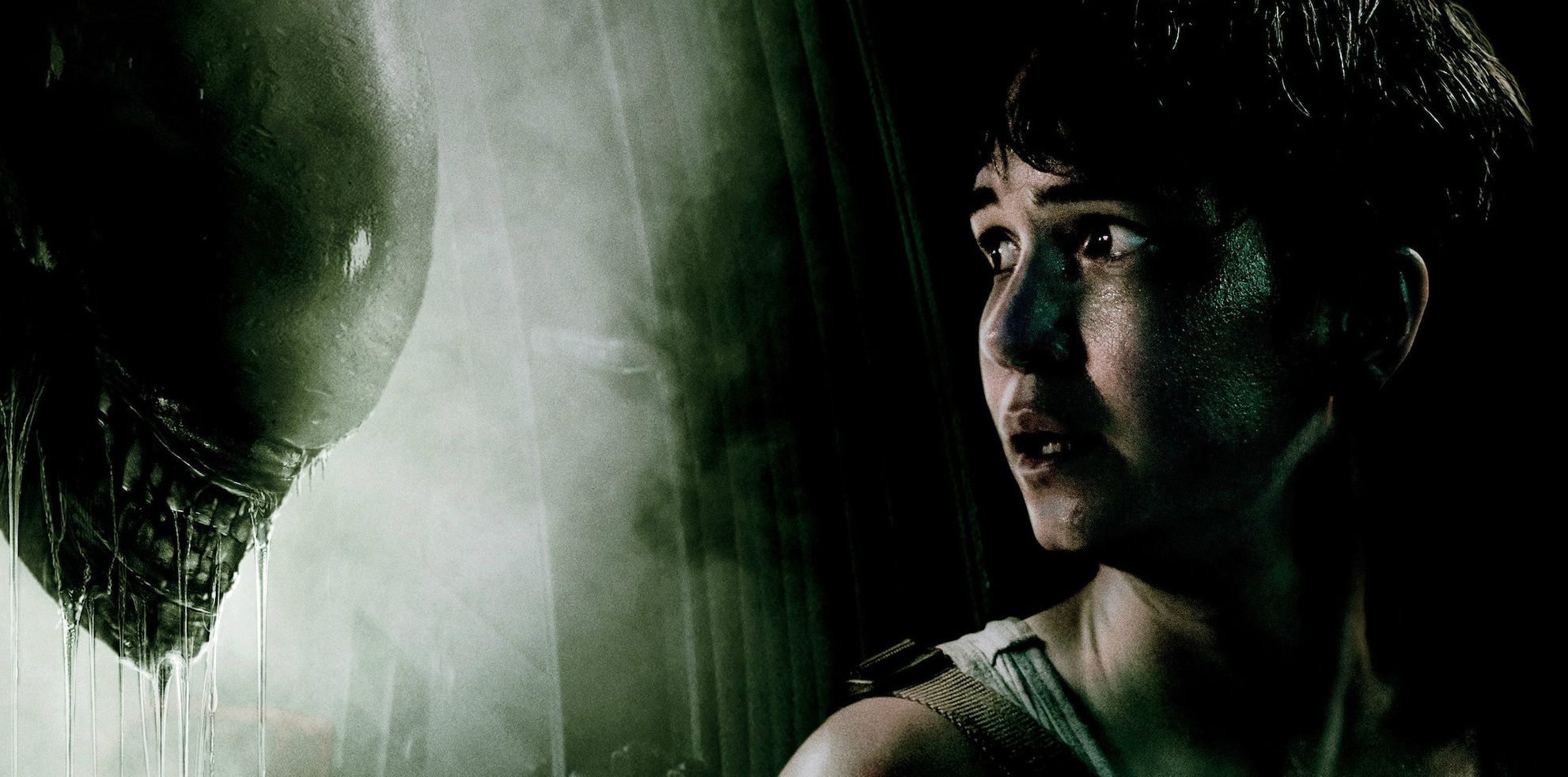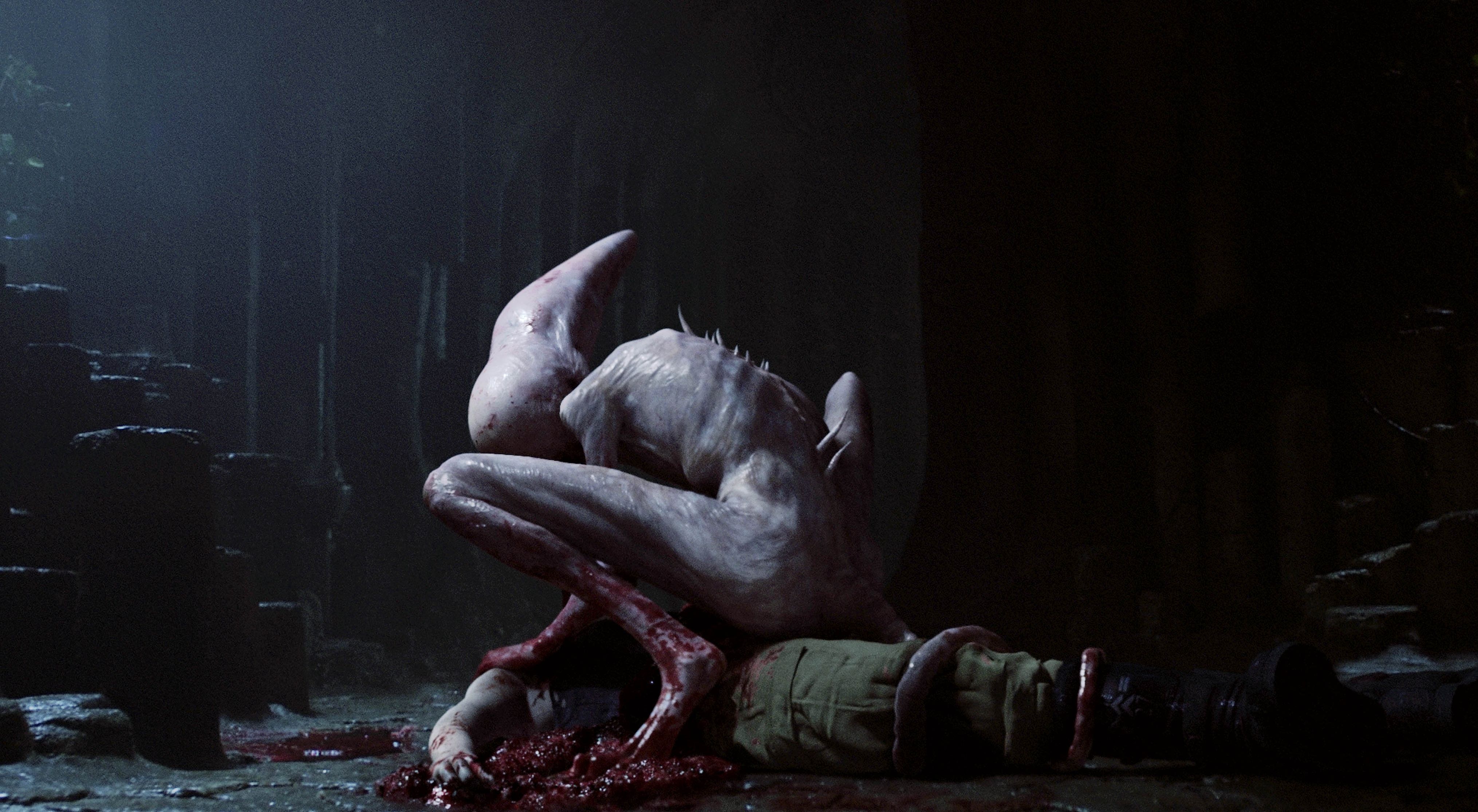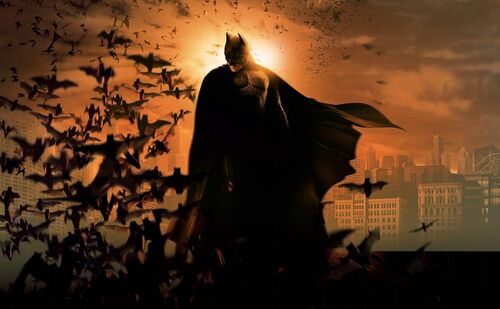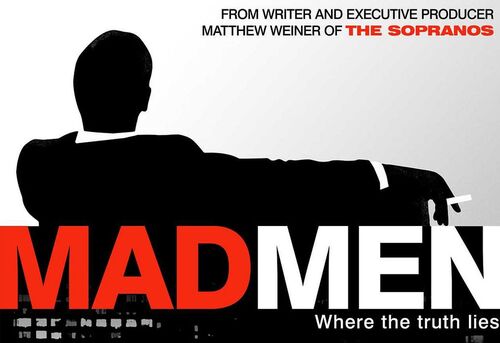
Alien: Covenant (2017) Review
 In Prometheus, a team of scientists who don’t act the part land on a planet in the hopes of discovering our maker. Rather predictably, things fall apart quickly and we're left with a plethora of unanswered questions. Warning. Mild spoilers follow.
In Prometheus, a team of scientists who don’t act the part land on a planet in the hopes of discovering our maker. Rather predictably, things fall apart quickly and we're left with a plethora of unanswered questions. Warning. Mild spoilers follow.
Alien: Covenant is Ridley Scott's attempt to reel both Prometheus and itself closer to his seminal, original horror classic, and it achieves so while also adding value to its predecessor. Covenant shares some of the same traits as Prometheus but unravels them in a more proficient manner. Committing itself to the fright and tension that made Alien and Aliens so groundbreaking, it manages profoundness in its exploration of humanity and creation, the flaws of the former and the beauty of the latter.
Michael Fassbender, the highlight of Prometheus, is again wondrous in dual roles as returning android David and a newer model aboard the vessel Covenant, Walter. David’s curiosity toward life and humanity veers unpredictably and leads to some of the film’s most rousing scenes, while his relationship with Walter harbors a kind of fascinating unease that helps to solidify both characters’ worldviews. The franchise’s insistence on firm, effective Artificial Intelligence has only become a more dominant asset since Scott took back the reins, and Fassbender seems to be the tying thread of this prequel series.
The remaining characters in the film are all interesting to the extent of their purpose, but are little more than victims-to-be. Every actor gives a solid performance, and Katherine Waterston is stoic as Daniels, the near-Ripley stand-in that unfortunately lacks much of an arc. She remains the only character capable of spouting logic while those around her make poor choices, but apart from that and a dramatic early scene, she’s mostly a blank slate. By the time she’s hanging off the edge of a ship in-motion, it’s abundantly clear we know next to nothing about her, and the lack of context as to her limitations damages the film’s climactic act.
The shortcomings of its characters matters little for the first two acts, though. As an audience, we know more or less what we’re getting from these films at this point. That’s harmful assuming a less capable director is at the helm, but Scott’s masterful craftsmanship is on full display for the first hour and a half. Whether the characters are traversing the terrain of this strange new planet, or venturing up to the front doorstep of something akin to a temple, the path lined with piled dead bodies for good measure, the only minor hindrance is how dark the screen is at times; it’s near impossible to make out what we’re looking at during select sequences, but it’s a minor complaint. Alien: Covenant is as gorgeous a film as we’re likely to see in 2017.

Apart from the visuals though, the narrative, from the screenplay by John Logan and D.W. Harper, unravels patiently and confidently. The first half an hour or more is spent in relatively steady motion, as the crew deals with a number of situations that might in less capable hands have felt tedious. Instead, here, it all feels as though it’s building toward something. And of course, once the crew touches down on a strange planet from which a human signal is being sent out, the soundtrack by Jed Kurzel begins to pulsate at a quickening pace. So too do our hearts. The first encounter the crew has with the horrors we all know are lurking there are several terrifying, exhausting scenes, all strung together in the most captivating of ways. Indeed, once things “settle,” it may feel as if you hadn’t taken a single breath in that entire time. During the build-up, we start to get our first series of clues as to what happened following Dr. Elizabeth Shaw and David’s survival at the close of Prometheus, a satisfying opportunity for those of us riveted by the world-building that kicked off in that film.
The new creatures in Covenant, dubbed Neomorphs, are introduced as a more violent, manic, unpredictable specimen. It moves along the ground on all fours not unlike a spider might scatter the area once you start spraying poison at its body, but with the grace of a dog. When it strikes in a grass field outside of the demolished ship that transported the characters to the ground, the open area couldn’t feel more claustrophobic. The film gives us time to settle after that, and while it coming to a halt may be slightly jarring, it allows for some riveting dialogue and assures that David steals the show from any of the crew members. There seems to be no protagonist through this patch, meaning perspective becomes murky. Daniels is given so little to do, but as we learn more about what David has been doing for the past decade, it seems to matter less and less.
All I wanted to do, though, was spend more time in this beautiful, dangerous world that Scott and co. had created. Instead, act two ends as the remaining humans depart the planet, with the iconic Xenomorph along for the ride, leading to a high-octane take-off that lacks the excitement and suspense of previous sequences; I've always found the Xenomorph to be less frightening when fully grown and in full view of the camera. Once Daniels returns to the Covenant, the film then experiences a severe tonal shift. Where up until then, it was a Prometheus sequel with distinct ties to Alien, the third act feels more like an homage to Alien itself. It's exciting but also the flattest period of the picture, and it can’t help but feel disjointed from what came before. When it ends, it ends abruptly, though I can’t fault the film’s closing moments, handling a rather predictable reveal with commendable punch, and leaving no questions but plenty of curiosity as to what comes next in Scott’s lead-up to Ripley’s first meeting with the Xenomorph.
Alien: Covenant is experimental, both as a chapter in the Alien franchise as well as with its titular monsters. While it unravels with beats that most of us can comfortably guess at this point, it fills the gaps in-between with some of the best dialogue of the franchise. So too, does Covenant return the series to its horror roots, offering a gripping hour-and-a-half followed by a reasonably solid, if uneven and overly familiar, climax. The stupidity of its characters again may be a topic of conversation among film-goers, but this time around, I think that was the point. David’s fascination in creation is enough for us to look at the Alien in a different light, if only briefly, and Covenant should give long-time fans enough confidence that whatever comes next can elaborate even further on one of cinemas greatest creatures. Those curious about the trajectory of Scott's origin tale will find a lot to love in this latest chapter.


